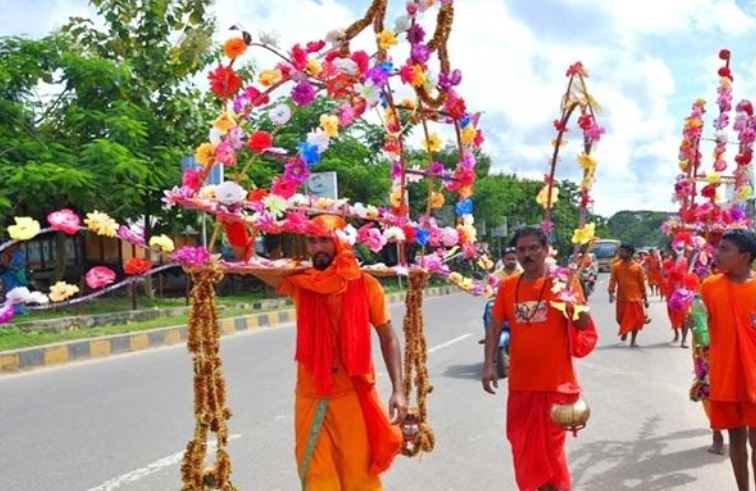Religious Festivity or Political Discord? U.P. Nameplate Order Fuels Controversy
The Uttar Pradesh (U.P.) government’s recent mandate, requiring vendors along the Kanwar Yatra pilgrimage route to prominently display nameplates, has ignited a firestorm of controversy. While the BJP-led administration defends the measure as a means to ensure transparency and maintain order, its allies within the National Democratic Alliance (NDA) are voicing strong reservations.
Allies Question Constitutionality and Divisive Intent of Nameplate Order
Prominent BJP allies, including the Janata Dal (United), Lok Janshakti Party (LJP), and Rashtriya Lok Dal (RLD), have publicly condemned the directive. They argue that compelling vendors, primarily street food sellers and shopkeepers, to reveal their identities during a religious procession is both unconstitutional and needlessly divisive.
Ramashish Rai, the state president of the RLD, a crucial BJP ally in western U.P., explicitly labeled the decision as “communally divisive and unconstitutional.” He urged the U.P. administration to rescind the order, emphasizing the need to avoid actions that could sow discord among communities.
Concerns over Discrimination and Economic Impact
Critics of the nameplate order fear that it unfairly targets Muslim vendors and could lead to discrimination against them. This concern is particularly acute in Muzaffarnagar, where vendors have reluctantly complied with the order, expressing apprehension about the potential for communal tensions and adverse effects on their businesses.
The directive has also raised eyebrows due to its economic implications. Vendors who rely on the Kanwar Yatra for their livelihood are now faced with the added burden of creating and displaying nameplates, while some have even felt compelled to let go of Muslim employees during the pilgrimage.
Differing Perspectives within the Ruling Coalition
While BJP allies are vocal in their opposition, some BJP leaders have defended the order. Mukhtar Abbas Naqvi, a senior BJP leader, initially criticized the Muzaffarnagar police’s earlier version of the order but later expressed support for the state government’s broader directive. He argued that the order demonstrates respect for the sentiments of the pilgrims and should not be politicized.
The controversy surrounding the nameplate order highlights the delicate balance between respecting religious traditions and upholding constitutional principles. As the Kanwar Yatra commences, the U.P. government faces mounting pressure to address the concerns raised by its allies and reconsider the potentially divisive implications of its directive.
Summary
The U.P. government’s order mandating nameplates for vendors during the Kanwar Yatra has sparked controversy, with BJP allies criticizing it as unconstitutional and divisive. Concerns have been raised about potential discrimination against Muslim vendors and negative economic impacts. While some BJP leaders defend the order, the controversy highlights the need for a balanced approach that respects both religious sentiments and constitutional rights.
Key Learnings
| Key Points |
|---|
| U.P. government’s nameplate order for Kanwar Yatra vendors draws criticism from BJP allies. |
| Concerns raised about potential discrimination against Muslim vendors and adverse economic impacts. |
| RLD state president terms the order “communally divisive and unconstitutional.” |
| Some BJP leaders defend the order as a show of respect for pilgrims’ sentiments. |
| Controversy highlights the need to balance religious traditions with constitutional principles. |
Soumya Smruti Sahoo is a seasoned journalist with extensive experience in both international and Indian news writing. With a sharp analytical mind and a dedication to uncovering the truth, Soumya has built a reputation for delivering in-depth, well-researched articles that provide readers with a clear understanding of complex global and domestic issues. Her work reflects a deep commitment to journalistic integrity, making her a trusted source for accurate and insightful news coverage.



